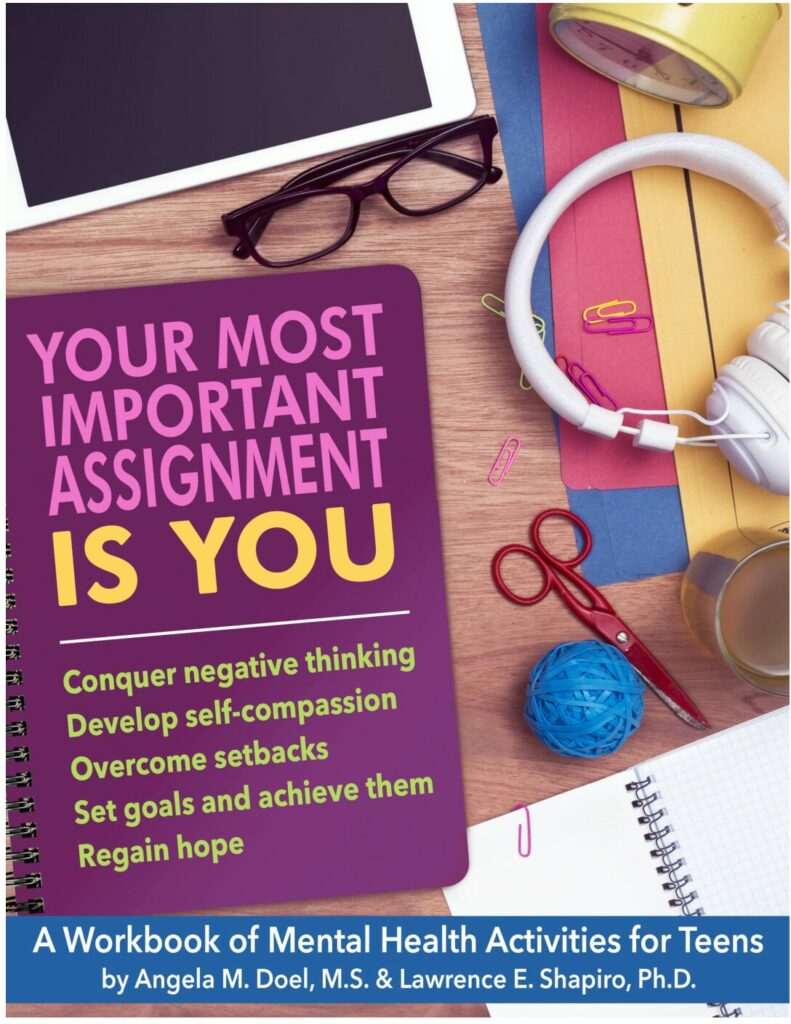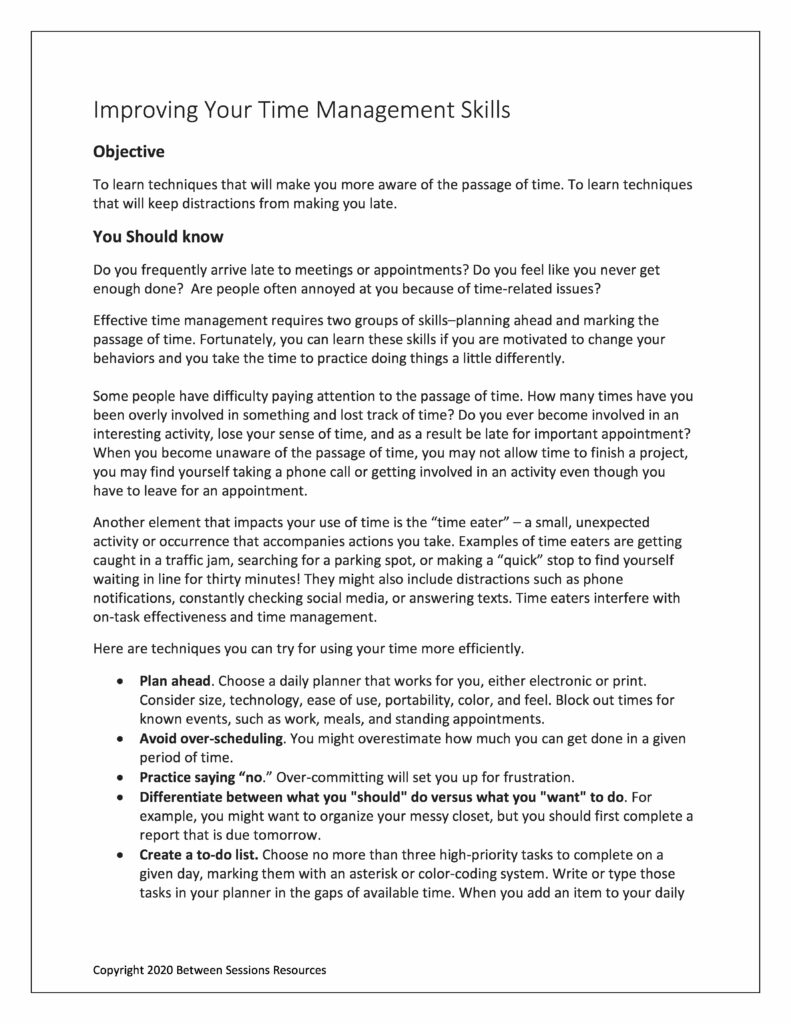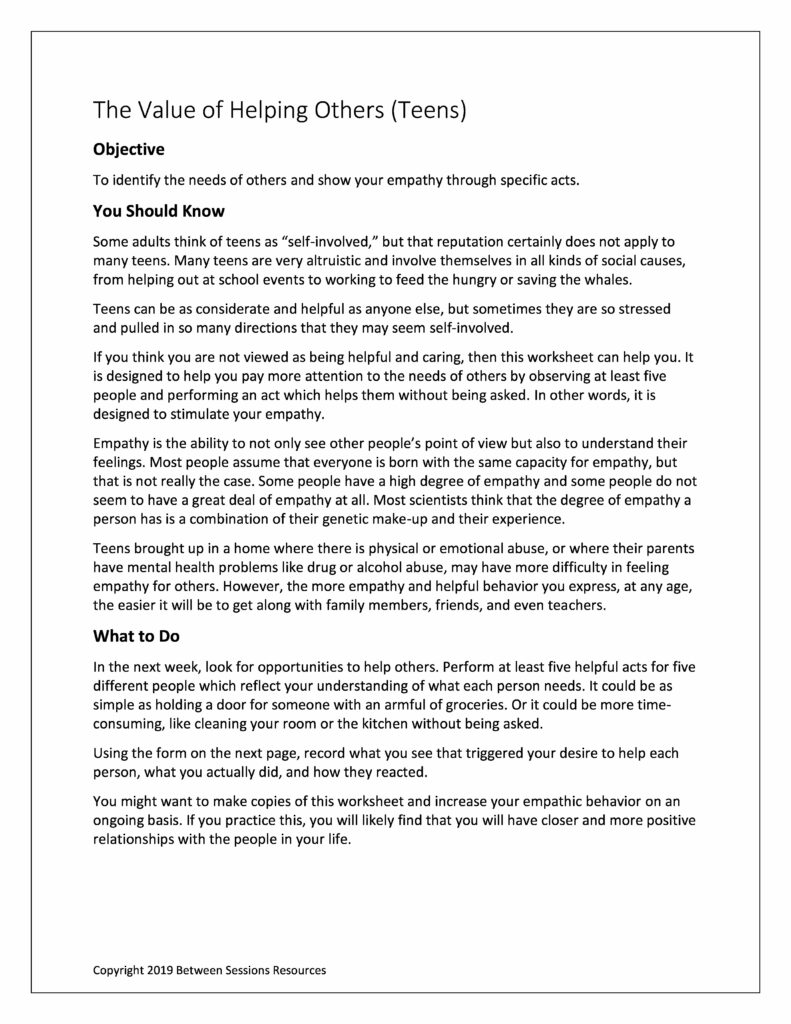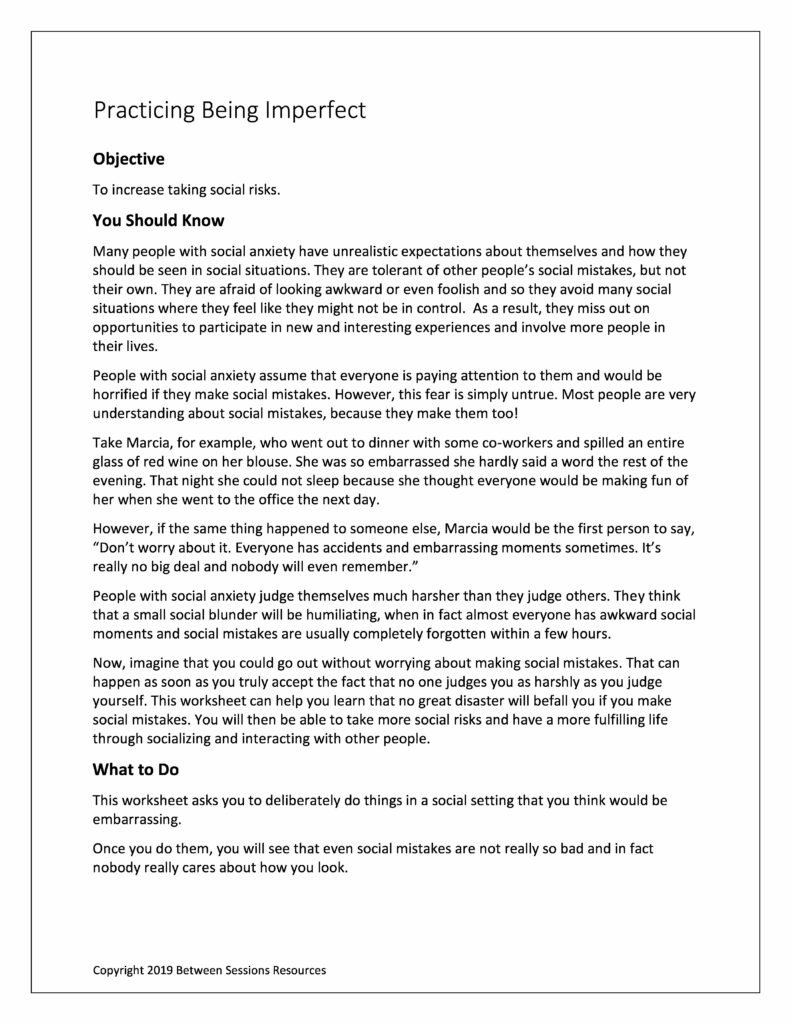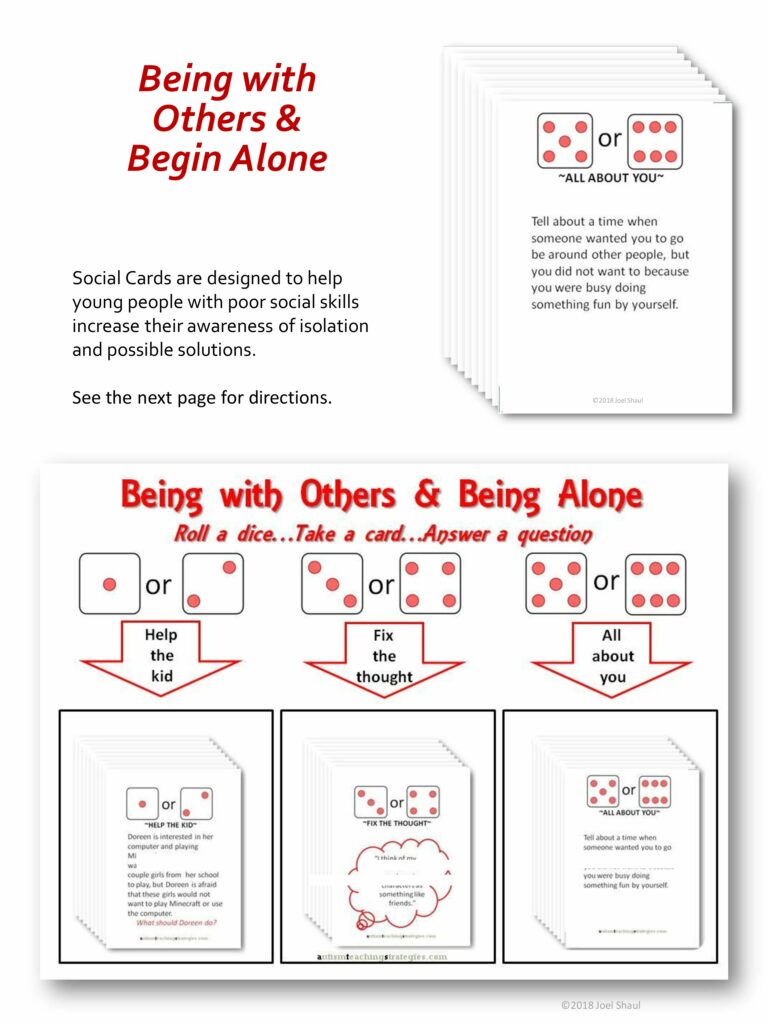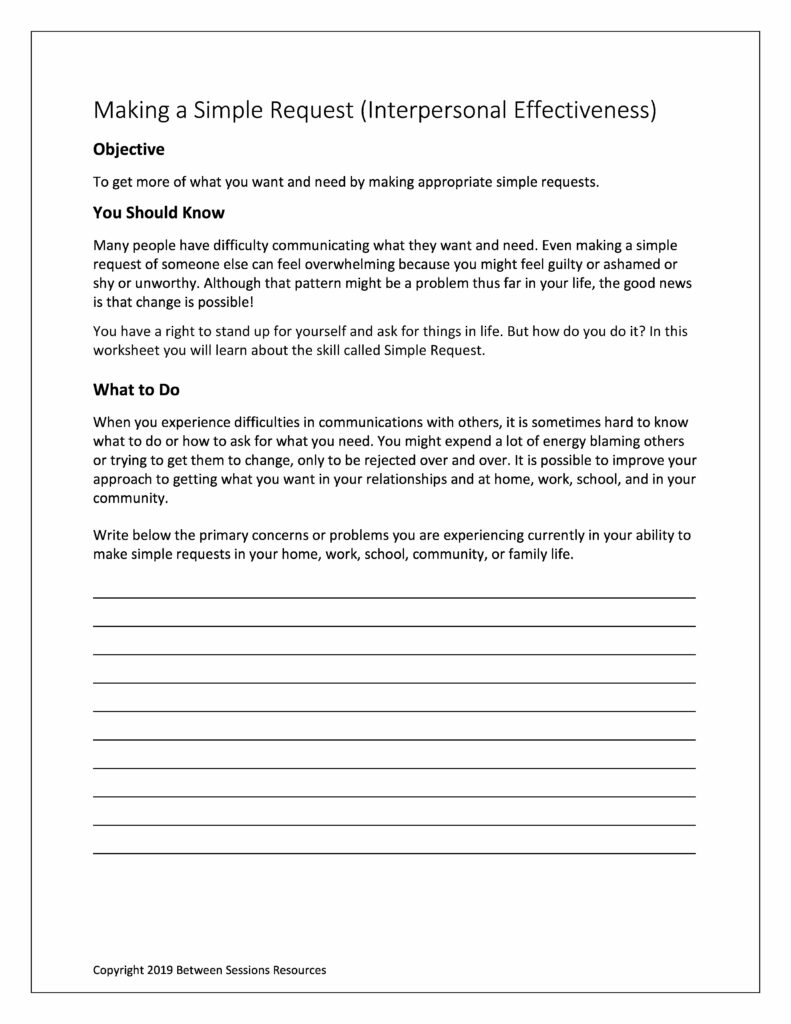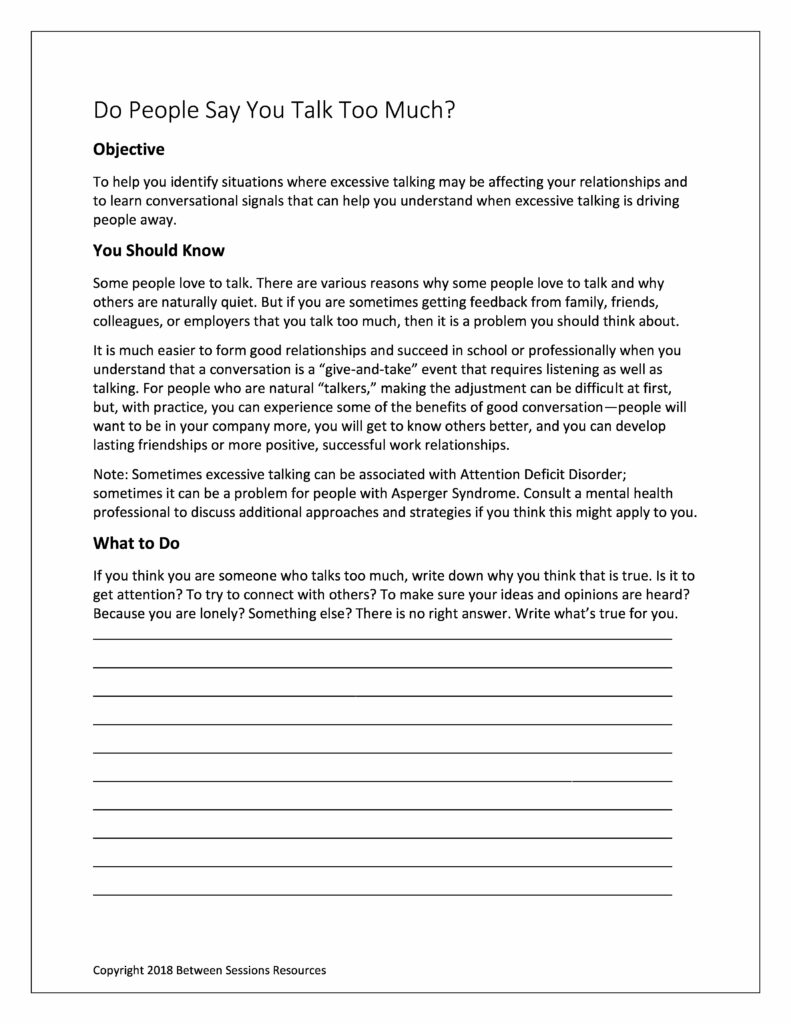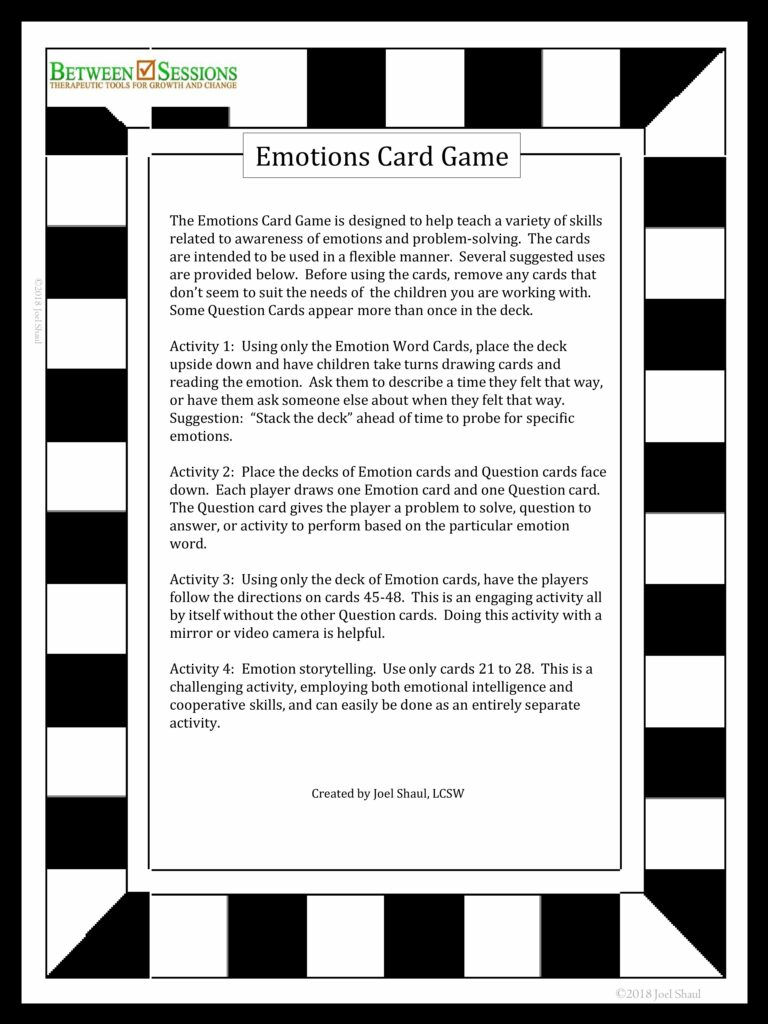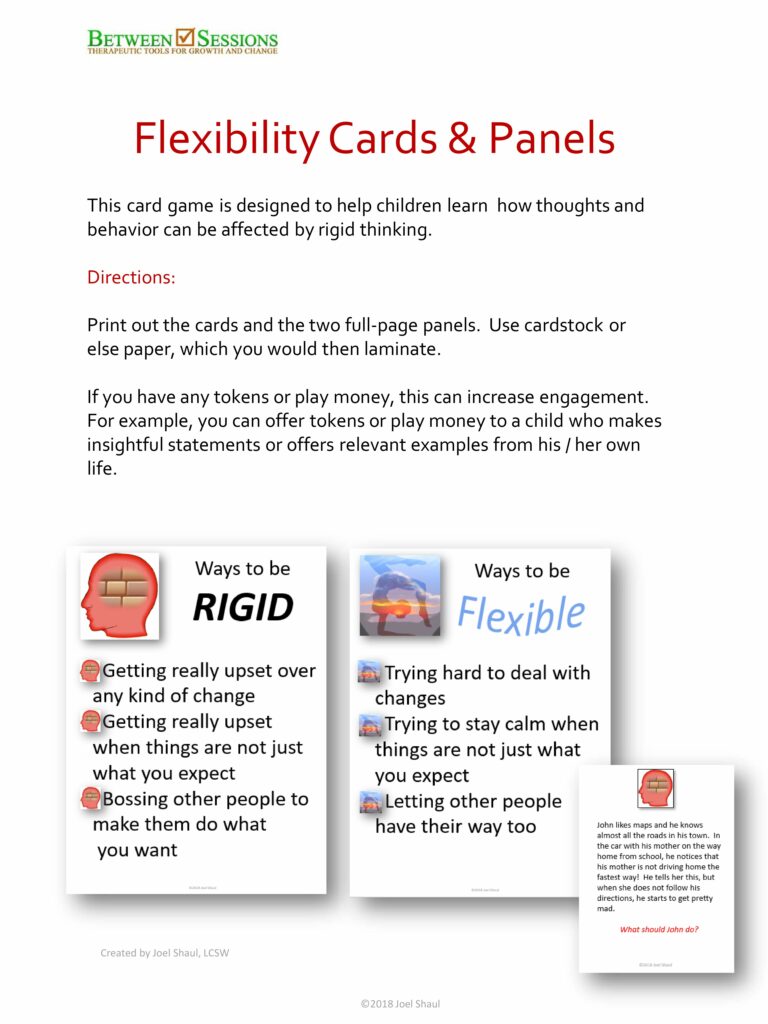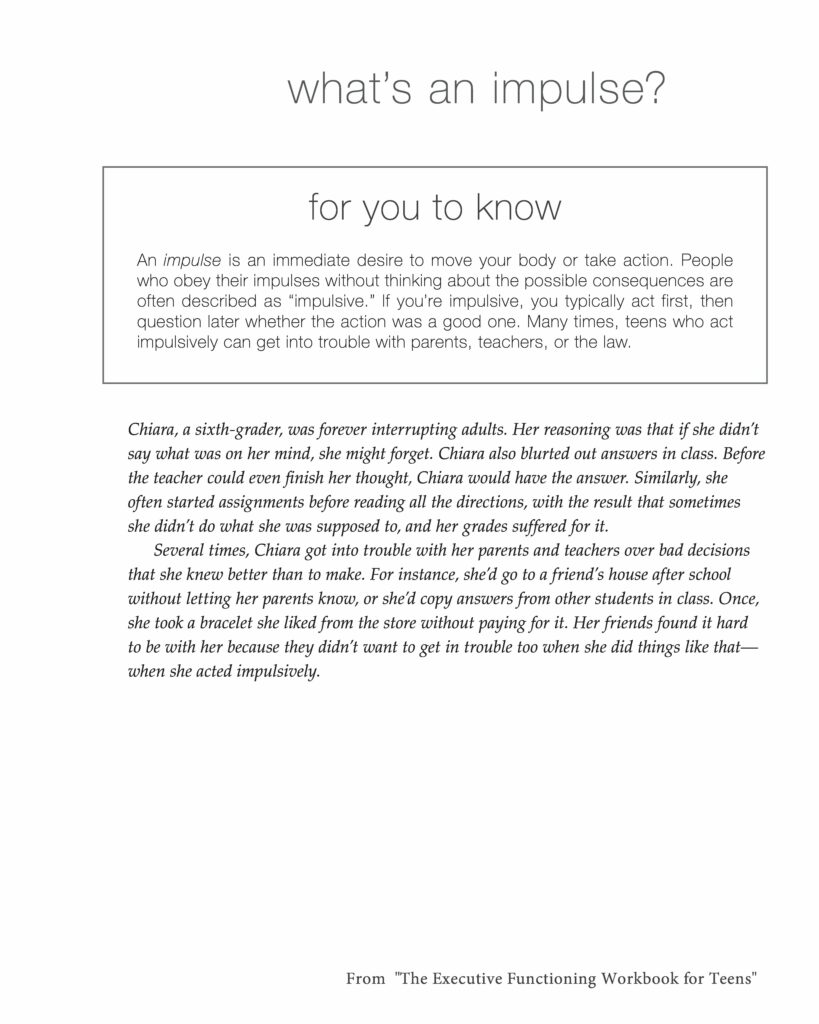This workbook is designed to help teens learn a variety of mental health skills to deal with anxiety and depression, as well as other common mental health problems.
This worksheet helps people with time management problems become more aware of the passage of time and the distractions that can become “time-eaters.” It gives specific techniques to use to help people plan their time more effectively. (ADHD, ASD, time management, 0620)
This worksheet is designed to help teens see the importance of empathetic acts. (behavior issues, Oppositional Defiant Disorder, empathy, 0719)
This worksheet is designed to help people take more social risks. Many people with social anxiety dread that they will embarrass themselves in public. This worksheet asks them to choose three situations where they deliberately make a social mistake in order to see that others really don’t care. (social anxiety, shyness, thought distortion, exposure therapy, 0520)
This simple card game is designed to help children and younger teens understand the consequences of being alone. There are three types of cards. The first type of card encourages children to make pro-social choices. A second card type helps children develop more pro-social thinking. The third type of card asks children to talk about experiences being alone and being with others, opening up conversations about what they can do differently. (Asperger Syndrome, ASD, Autism Spectrum Disorder, 0519)
This worksheet is designed to help people get more of what they need learning how to make appropriate simple requests. This a DBT technique intended to help people develop their personal effectiveness. (DBT, assertiveness, 0419)
This worksheet is designed to help people identify situations where excessive talking may be affecting their relationships and to help them learn conversational signals that can aid in more appropriate give and take conversations. (ADHD, Asperger Syndrome, relationships, social skills, 0219)
The Emotions Card Game is designed to help teach a variety of skills to children and teens related to awareness of emotions and problem-solving. The cards are intended to be used in a flexible manner. The instructions describe four different games than can be played. 27 pages (1118, emotional intelligence)
This activity for kids and teens teaches the importance of flexible social thinking. It includes two “poster” handouts to open a discussion on flexible thinking and a simple card game to practice new skills. (Asperger Syndrome, social intelligence, autism, ADHD, 1018)
This worksheet, from the Executive Functioning Workbook for Teens, is designed to teach adolescents to understand the nature of the impulses and how to control them. (ADHD, self-control, 0418)

